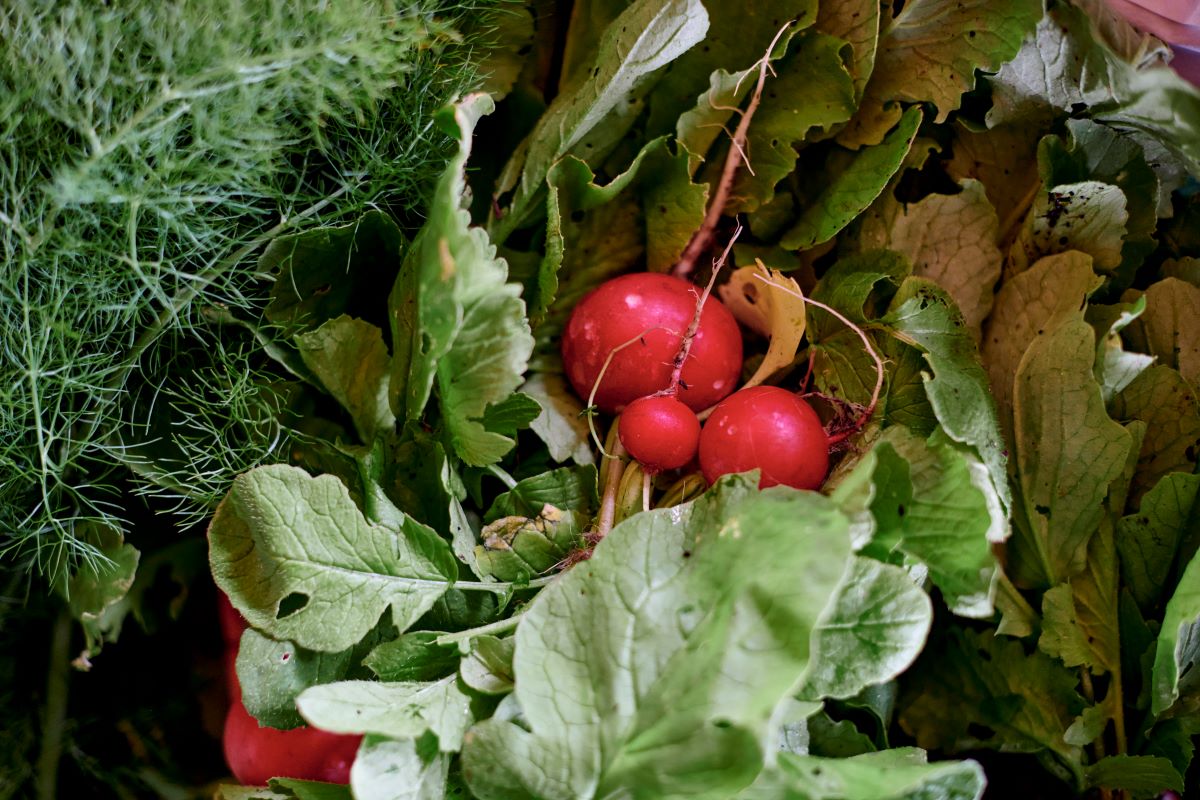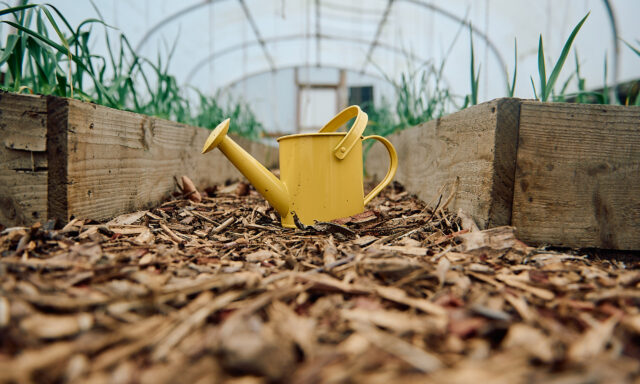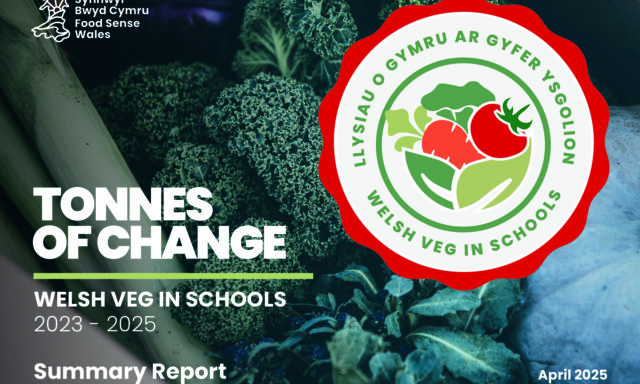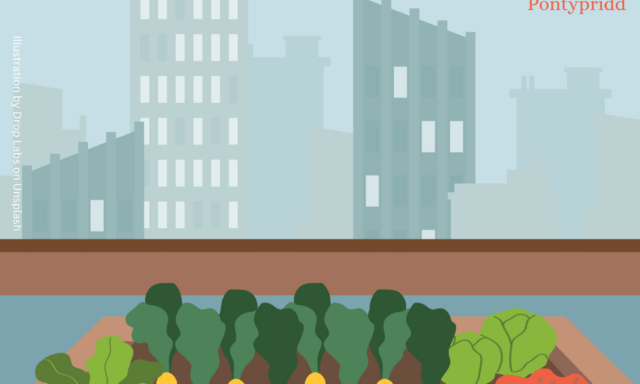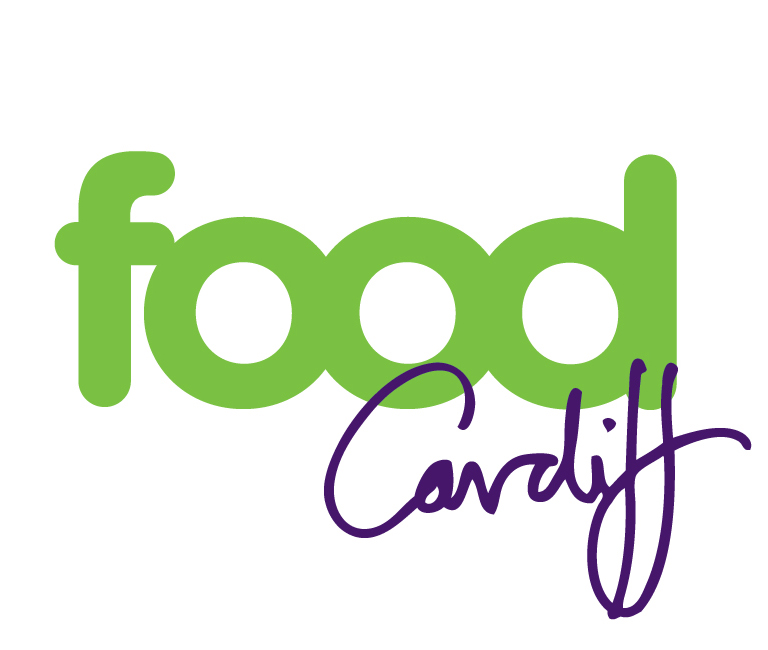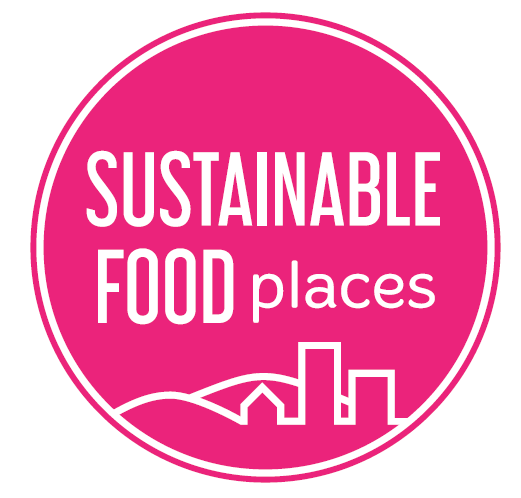Investment in a small-scale horticulture grants scheme could significantly increase the amount of veg produced in Wales
Evaluation of a recent pilot study undertaken by Food Sense Wales has shown that small-scale investment can have a significant and positive impact on horticulture businesses, with sales of veg increasing on average by 74.5%.
Food Sense Wales, with funding from the Peas Please initiative and facilitation by Social Farms and Gardens, ran a pilot of a small grants to fund equipment for small scale horticultural growers in Wales – growers who previously, had minimal opportunities to access capital investment grants.
Having studied the findings of this pilot project, Food Sense Wales is now calling on Welsh Government to consider creating a new infrastructure grant scheme for small scale horticulture in Wales that would result in speeding up the growth of the sector and leading to greater sales of veg across Wales.
The pilot study awarded small grants, worth between £2,500 and £5,000 grants, to five food enterprises with no more than 5-Hectares of production land in a bid to help smaller Welsh initiatives increase their production and in turn, increase people’s veg consumption.
The five successful recipients were Henbant Permaculture in Gwynedd; Troed y Rhiw Organics in Ceredigion; Angle Walled Garden in Pembrokeshire; Ash & Elm Horticulture in Llanidloes and Carmarthenshire-based Glasbren CIC. All five businesses used the funding to focus on providing different solutions to help grow their enterprises, helping to increase the amount of veg produced for the communities they serve.
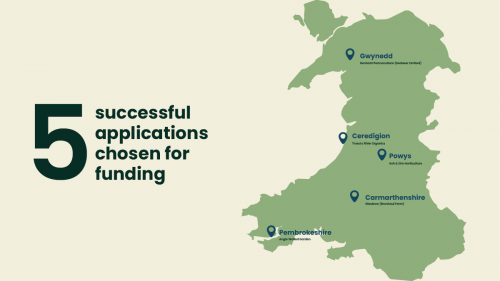 The study, undertaken by Dr Amber Wheeler, found that the overall fund of £20,000 allocated to five fruit and veg businesses led to growth in sales of veg by an average 74.5% and overall, an extra 79 families a week benefitted from a veg box.
The study, undertaken by Dr Amber Wheeler, found that the overall fund of £20,000 allocated to five fruit and veg businesses led to growth in sales of veg by an average 74.5% and overall, an extra 79 families a week benefitted from a veg box.
“In 2020 the Tyfu Cymru baseline survey found that there were around 200 edible horticulture businesses in Wales, though now there are more. At that time, those businesses were estimated to be producing ¼ of a portion of fruit and veg per head of population in Wales,” says report author, Dr Amber Wheeler. “Based on the findings of this pilot, a small-scale grants scheme could significantly increase this and see the expansion of sales of veg in Wales by on average 74.5% per year.”
This pilot study also highlighted the community benefits linked to small-scale investment. As well as more sustainable vegetables being grown in communities across Wales, the research also noted an improvement in working environment for volunteers; increased ability for growers to host educational visits and community events, and more vegetables going to low-income families. There were also environmental benefits including improvement in biodiversity and soil health; greater productivity; greater efficiency and less waste, and increased resilience to water shortages.
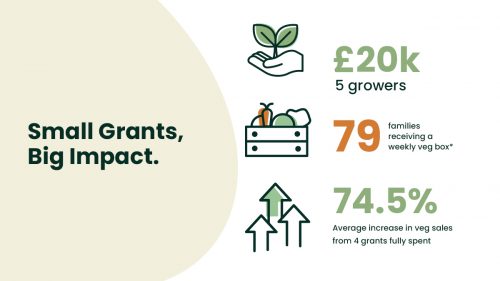 Food Sense Wales decided to pilot this small grants scheme for small-scale (under 5 ha) edible horticulture producers in Wales as part of its aim to influence and impact on how food is produced and consumed in Wales, ensuring that sustainable food, farming and fisheries are at the heart of a just, connected and prosperous food system. The grants were for equipment and infrastructure and the work was funded by Peas Please, a UK National Lottery funded programme whose main aim is to drive up veg consumption. Food Sense Wales leads on the Peas Please work in Wales and brings together farmers, retailers, and restaurant chains, caterers, processors and government departments with a common goal of making it easier for everyone to eat veg.
Food Sense Wales decided to pilot this small grants scheme for small-scale (under 5 ha) edible horticulture producers in Wales as part of its aim to influence and impact on how food is produced and consumed in Wales, ensuring that sustainable food, farming and fisheries are at the heart of a just, connected and prosperous food system. The grants were for equipment and infrastructure and the work was funded by Peas Please, a UK National Lottery funded programme whose main aim is to drive up veg consumption. Food Sense Wales leads on the Peas Please work in Wales and brings together farmers, retailers, and restaurant chains, caterers, processors and government departments with a common goal of making it easier for everyone to eat veg.
“The rationale for the pilot came from evidence that horticulture, particularly small-scale production, has been historically under resourced as producers working land of under 5 hectares have been less eligible for Government grants or subsidy,” says Katie Palmer, Programme Manager at Food Sense Wales. “We wanted to test and evaluate the difference small capital grants can make in horticultural production, specifically whether it could lead to an expansion of sales of fruit and veg in communities across Wales.
“Having considered the results of this successful pilot project, Food Sense Wales along with our partners in this project – Peas Please and Social Farms and Gardens – now recommended that Welsh Government take the findings of this evaluation and use them to develop a larger scale pilot of a bespoke infrastructure small grant scheme for horticulture in Wales,” continues Katie Palmer.
“We need to ensure that Wales can employ a mix of diverse approaches to increase sustainable horticulture production in Wales. Some of Wales’ larger producers, such as Puffin Produce, are a vital part of this mix and as part of the company’s latest Peas Please pledge, is aiming to increase sustainable production even further. But in order to increase overall vegetable production in Wales, creating an infrastructure for the delivery of a small grant scheme would significantly speed up the growth of the small-scale horticulture sector – and lead to greater sales of vegetables as well as wider community and environmental benefits across Wales.”
Emma Maxwell from Ash & Elm Horticulture, one of the recipients of the grants adds: “It’s been fantastic for us; really life-changing for the business……Having an input of investment like we’ve had with this pot of funding really jump starts where you’re going with your business and moves it forward so much faster than you could possibly do on the profit of just growing veg.”
Read the report it full here and to hear more about the pilot study, listen to a recent Food Sense Wales podcast presented by Dr Amber Wheeler here that features some of the grant recipients as they further discuss the project’s results and impacts.
ENDS

